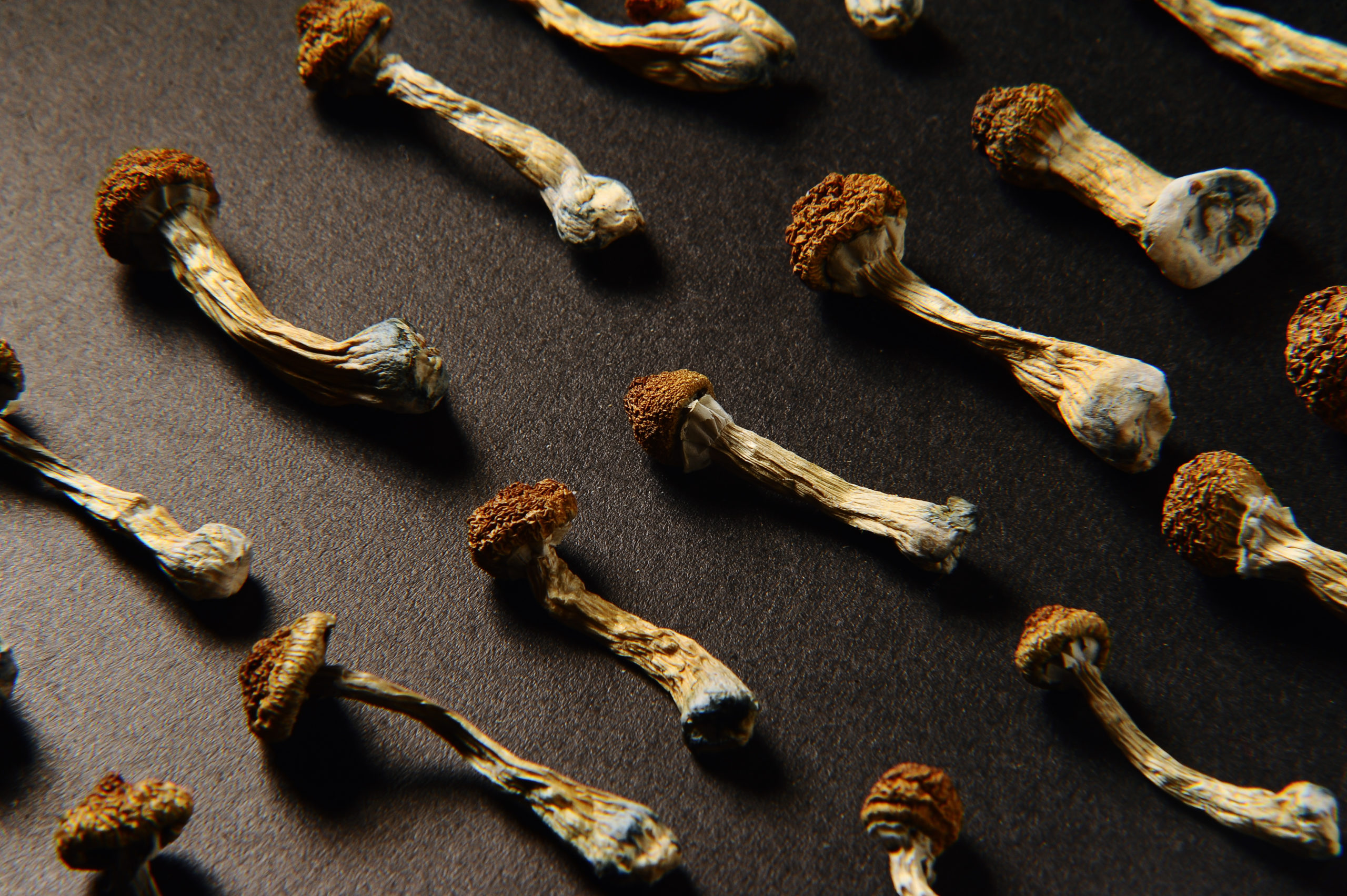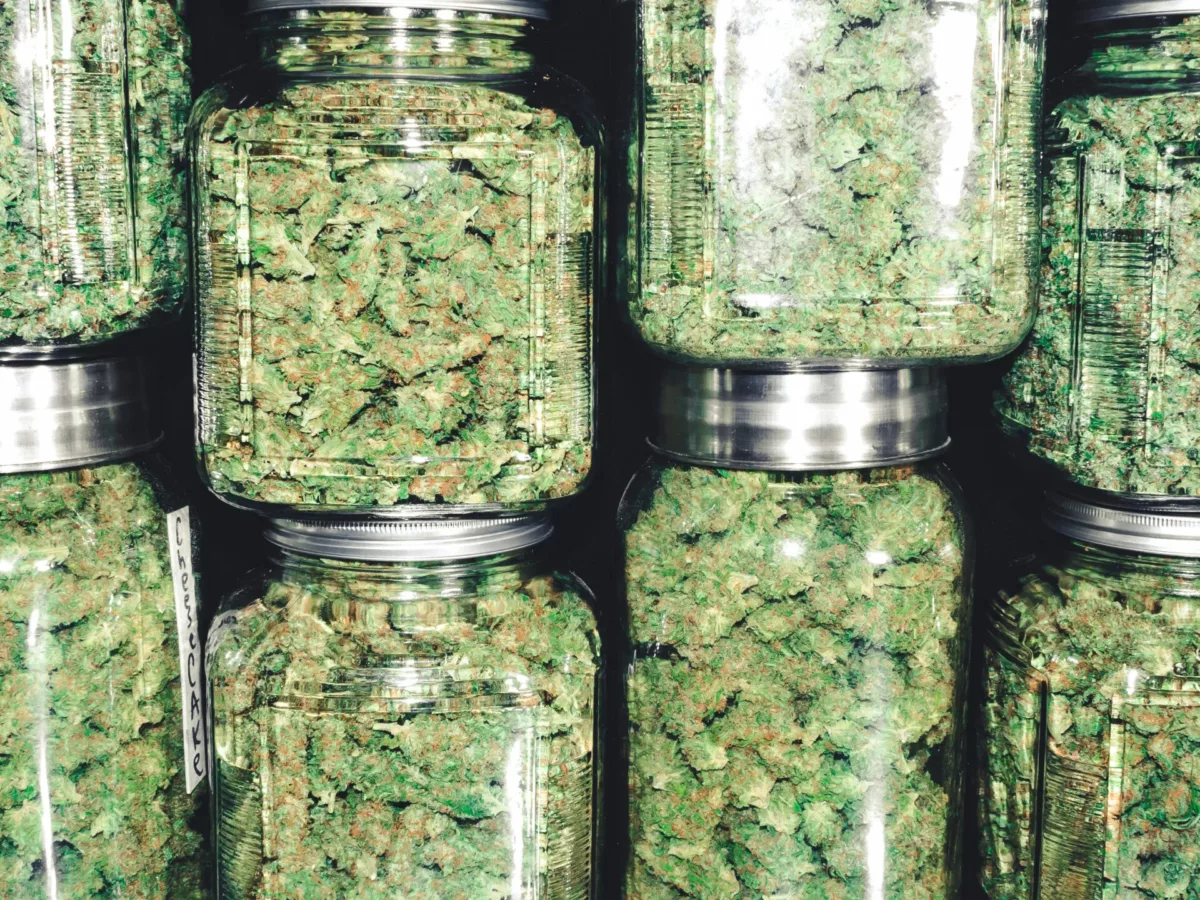Maryland lawmakers spent their final few days in session moving through a flood of bills in the State House, and one of the measures they sent to the governor’s desk was a first-of-its-kind proposal to support psychedelic drug treatment and access for veterans.
Senate Bill 709, passed unanimously by the Maryland Senate on Friday, seeks to create a fund to provide “cost-free” access to psilocybin, ketamine and MDMA to veterans who suffer from post-traumatic stress disorder (PTSD) and traumatic brain injury (TBI).
The fund would pull from the state budget and other sources to study “alternative therapies” to treat PTSD and TBI in veterans. State funding would start at $1 million for fiscal year 2024.
The Maryland Department of Health would be in charge of administering that money and periodically consulting various government agencies and medical institutions on the effectiveness of the drug therapies, how to improve patient access and how to best spend money from the fund. Those organizations will include the Department of Veterans Affairs, Johns Hopkins University, the University of Maryland, Sheppard Pratt, Walter Reed National Military Medical Center and BrainFutures.
A bipartisan coalition of lawmakers sponsored the Senate bill — which had a nearly identical, Republican-sponsored sister bill in the House of Delegates — and named it the “David Perez Military Heroes Act (End 22 a Day) Act” in honor of a Frederick County veteran who died by suicide in 2020, and to highlight the oft-noted statistic that 22 veterans die by suicide each day in America. As noted by Marijuana Moment, lawmakers discussed the potential mental health utility of psilocybin and other drugs during a House Appropriations Committee hearing on the bill last Thursday, before it went to full votes in both houses.
“As you know, many of our veterans have come home and suffer from depression, anxiety, suicidal thoughts if not suicide, and… this is an effort that is being used now that seems to be showing some very positive results,” said Del. Maggie McIntosh (D-Baltimore), who chairs the committee, in a nod to a recent “60 Minutes” segment.
“We have to really look at our veterans. They are committing sucicide at an alarming rate and we’ve got to do everything we can. And I’m proud to support this bill,” added Del. Ric Metzgar (D-Baltimore County).
The bill received unanimous approval in both houses the following day and it now sits with Gov. Larry Hogan. The outgoing two-term Republican has not publicly stated his views on psychedelic drug therapies. Last week, Hogan said he would allow a high-profile cannabis legalization bill pushed by Democrats through the General Assembly this year to become law without his signature. (A separate bill not requiring Hogan’s signature has made recreational legalization a ballot question in the upcoming November general election.)
The effort to expand psychedelic drug treatment options for veterans fared much better in Maryland this year than in Virginia, where a pair of bills to decriminalize possession psychedelics died in committee in January. The bills were amended to stipulate that someone found possessing psilocybin or psilocin would face only a misdemeanor with a $100 civil fine, rather than a felony, if they received a prescription and guidance from a medical professional.
However, several Virginia senators dropped their initial verbal support from earlier committee hearings and voted to table the legislation indefinitely.
A growing body of research, some of it coming from local institutions like Johns Hopkins University in Baltimore and Virginia Commonwealth University in Richmond, indicates various psychedelic drugs currently listed as Schedule I banned substances can actually be useful tools for treating depression, anxiety, PTSD and other mental health conditions.
Also locally, Baltimore psychiatric care provider Sheppard Pratt last year announced it would open the Center for Psilocybin Research and Treatment with COMPASS Pathways, a U.K.-based company that is developing psilocybin-assisted mental health therapy.
Numerous states, including Utah, Georgia and Missouri, have recently approved or significantly advanced legislation to expand access to psychedelics as a form of therapeutic care. They’re following in the footsteps of Oregon voters, who in 2020 legalized psilocybin for therapeutic uses via referendum. Denver and Washington D.C. also decriminalized shrooms at the ballot in 2019 and 2020, respectively.






